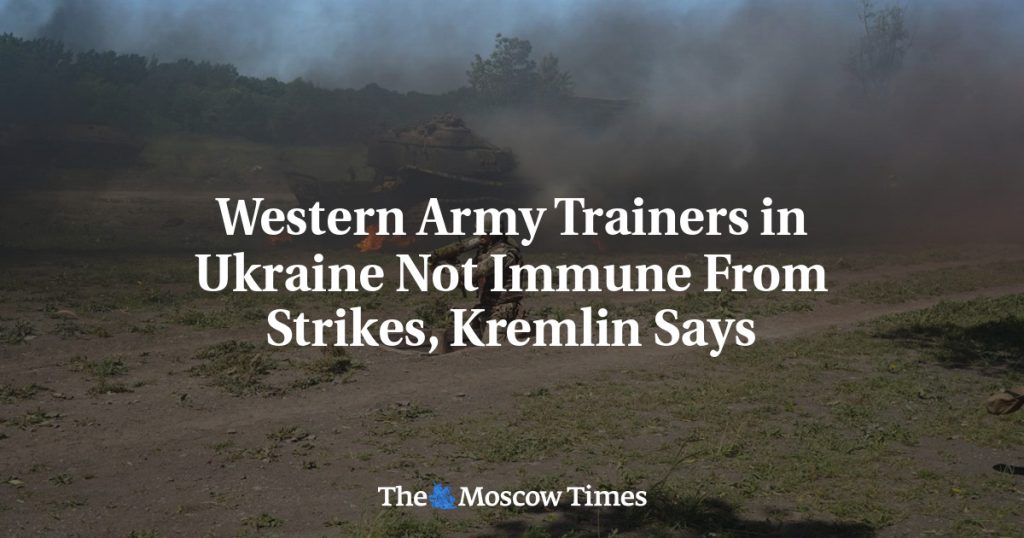The Kremlin declared that Western army instructors training Ukrainian soldiers in Ukraine would not have immunity from Russian strikes. This statement came after reports that France might send military trainers to Ukraine. While Ukraine’s army chief mentioned that French military instructors were expected to arrive in the country, the Defense Ministry later retracted this claim. Kremlin spokesman Dmitry Peskov emphasized that any instructors involved in training Ukrainian forces would not be immune, regardless of their nationality. French President Emmanuel Macron has not ruled out deploying troops to Ukraine, despite opposition from other NATO members and strong warnings from Moscow. At present, France does not have military personnel aiding or training Ukrainian forces within Ukraine.
The warnings from Russia against Western military assistance to Ukraine have escalated tensions between the two countries. Moscow has previously stated that it would destroy any Western military hardware sent to Ukraine. The Defense Minister of Ukraine confirmed ongoing discussions with Paris and other allies about the potential deployment of instructors. The situation remains delicate, with the possibility of French military involvement in Ukraine raising concerns about further conflict with Russia. The conflicting interests and actions of various NATO members regarding Ukraine highlight the complexity of the situation and the challenges of finding a diplomatic resolution to the conflict.
The potential involvement of French military trainers in Ukraine has sparked debate within NATO about how to support Ukraine without escalating the conflict with Russia. While some members are cautious about military intervention, others, like France, are considering more direct assistance to Ukrainian forces. The differing positions within NATO reflect the broader geopolitical tensions between Western countries and Russia. The threat of Russian strikes against Western instructors in Ukraine underscores the high stakes involved in any military assistance to the country. Finding a balance between supporting Ukraine and avoiding a direct confrontation with Russia is a delicate task for NATO and its member nations.
The Kremlin’s warning about the lack of immunity for Western instructors in Ukraine suggests that Russia is prepared to take action to prevent Western military intervention in the country. The Russian government’s stance reflects its strong opposition to any foreign involvement in Ukraine, especially from NATO members like France. The potential for a conflict between Russian and Western forces in Ukraine raises the specter of a wider war in the region, with potentially far-reaching consequences. The conflicting interests of Russia and NATO in Ukraine highlight the challenges of finding a peaceful resolution to the conflict and the risks of further escalation in the region.
The uncertain situation in Ukraine, with the possibility of French military trainers arriving in the country, has added another layer of complexity to the conflict. The ongoing discussions between Ukraine and its allies about military assistance underscore the importance of finding a way to support Ukrainian forces without provoking further aggression from Russia. The conflicting interests of NATO members and Russia in Ukraine create a challenging diplomatic situation, with the potential for military confrontation looming in the background. As the situation continues to unfold, finding a peaceful resolution to the conflict in Ukraine remains a crucial priority for the international community. Balancing the need to support Ukraine with the risk of escalating tensions with Russia is a delicate and urgent task for all involved.


